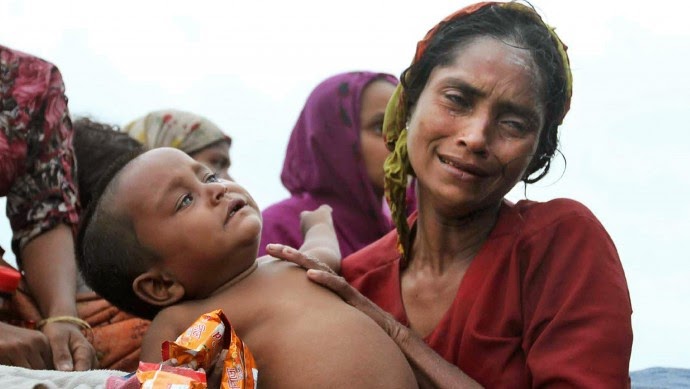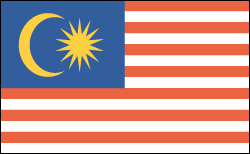Why Rohingya Has Never Been Granted Citizenship ?
Rohingyas, Burmese Muslim
minority group, have been living with the fear of violence and religious
discrimination while they have been still considered as the stateless people
and unwanted group on the Earth. Historically, Rohingyas were illegal immigrants
who fled from the Bengali in Bangladesh. They have lived in Myanmar’s state of
Rakhine for many decades, yet they have not been granted citizenship and
recognized as legal ethnic groups in the country.
When talking about the human rights abuses in Myanmar, people
never forget the Muslim minority Rohingya who are residing in Northern of
Rakhine state. Rohingya refugees have been severely repressed and discriminated
by Myanmar's government and citizens especially after breaking out of the
religious conflict in late 2011. Myanmar's government always considers
Rohingyas as the illegal immigrants who fled from its neighboring country
Bangladesh and many people called them Bengali. Historically, some of them have
been in Myanmar for centuries while some just fled to live in Myanmar in the
recent decades. Those refugees have never been granted citizenship and listed
into 135 official ethnic groups in the country. They have been traumatized by
the bloody and brutal violence and suffering from the health crisis. Having not
been recognized by the authority as citizens, Rohingyas have actually become
the de jure stateless people and faced up with the social restriction including
the limit of family size, land confiscation, and eviction and cultural
oppression.
In response to the violence and human rights abuses, international
agencies and organization, including UN refugee agencies, have tried to call on
the Myanmar's government to give those Rohingyas the civil, economic, and political
rights and protect them from any rights intrusion and religious discrimination.
Government itself should give up systematic human rights violations against
those minorities. Moreover, the government has been also asked to offer
Rohingyas more humanitarian aid. But the government has done very little thing
to prevent escalating of violence against Rohingyas and in response to the
appeal from international community. It has so far been doubtful why Myanmar
government never recognizes and discriminates Rohingyas. There are many reasons
motivating Myanmar's government not to grant Rohingyas citizenships. However, I
just list only three possible reasons here.
First of all, it is a religious division in Myanmar. Myanmar is
definitely divers with more than hundred ethnic groups, and they also have
different religions. Rohingya is generally Muslim while most of Myanmar people
are Theravada Buddhists. If the government took action unilaterally to help
Rohingya or grant them citizenship, it would surely face the massive public
reaction from the major Myanmar people. It is undeniably true because even
opposition leader and Nobel Peace prize winner Aung San Suu Kyi has still largely remained
silent for long time upon the discrimination. It is because she fears of losing
her popularity in country’s political affairs.
Second, it comes to the historical antagonism. Actually, Myanmar
people always consider Rohingya ethnic group as a threat to their territorial
integrity since these Muslim people used to rule the Rakhine state since the
pre-British colonization. Politically speaking, Myanmar's politicians claim
that Rohingyas are trying to Islamize their country with a very high birth
rate. According to the government official, the Rohingya population growth is
ten time faster than that of Buddhist native. Thus, if the government still
kept them as legal immigrants and offered them citizenship, Myanmar would
become a Muslim state in the future.
Third, it is because Myanmar’s government fears of the
emergence of separatist movement in Rakhine state. The Myanmar authority also
believes that if they don’t strictly control Rohingyas, those ethnic peoples
will stand up and take up arms against the central government clearing the way
for proclaiming the new independent state. As it is claimed that Rohingya
population keeps increasing dramatically, and this is emerging as a threat to
unity and solidarity of Myanmar.
However, it's 21st century already. The government should
end all kind of human rights violations, and it should also treat every people
in the society equally regardless of their race, languages, sex, and religions.
Peace won't last long if the hatred still emerges in the society.





Comments
Post a Comment